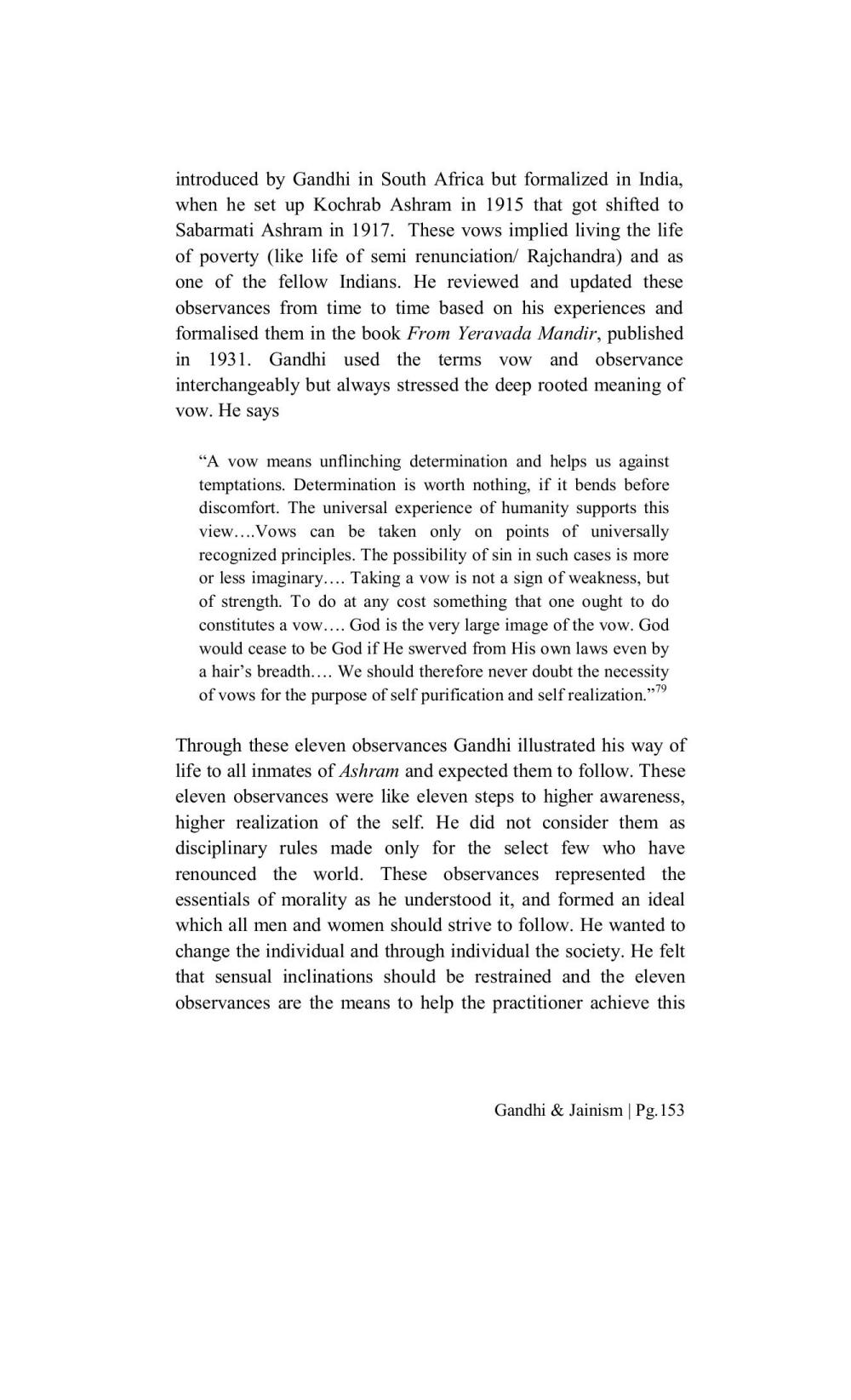________________
introduced by Gandhi in South Africa but formalized in India, when he set up Kochrab Ashram in 1915 that got shifted to Sabarmati Ashram in 1917. These vows implied living the life of poverty (like life of semi renunciation/ Rajchandra) and as one of the fellow Indians. He reviewed and updated these observances from time to time based on his experiences and formalised them in the book From Yeravada Mandir, published in 1931. Gandhi used the terms vow and observance interchangeably but always stressed the deep rooted meaning of vow. He says
"A vow means unflinching determination and helps us against temptations. Determination is worth nothing, if it bends before discomfort. The universal experience of humanity supports this view....Vows can be taken only on points of universally recognized principles. The possibility of sin in such cases is more or less imaginary.... Taking a vow is not a sign of weakness, but of strength. To do at any cost something that one ought to do constitutes a vow.... God is the very large image of the vow. God would cease to be God if He swerved from His own laws even by a hair's breadth.... We should therefore never doubt the necessity of vows for the purpose of self purification and self realization."79
Through these eleven observances Gandhi illustrated his way of life to all inmates of Ashram and expected them to follow. These eleven observances were like eleven steps to higher awareness, higher realization of the self. He did not consider them as disciplinary rules made only for the select few who have renounced the world. These observances represented the essentials of morality as he understood it, and formed an ideal which all men and women should strive to follow. He wanted to change the individual and through individual the society. He felt that sensual inclinations should be restrained and the eleven observances are the means to help the practitioner achieve this
Gandhi & Jainism | Pg. 153




